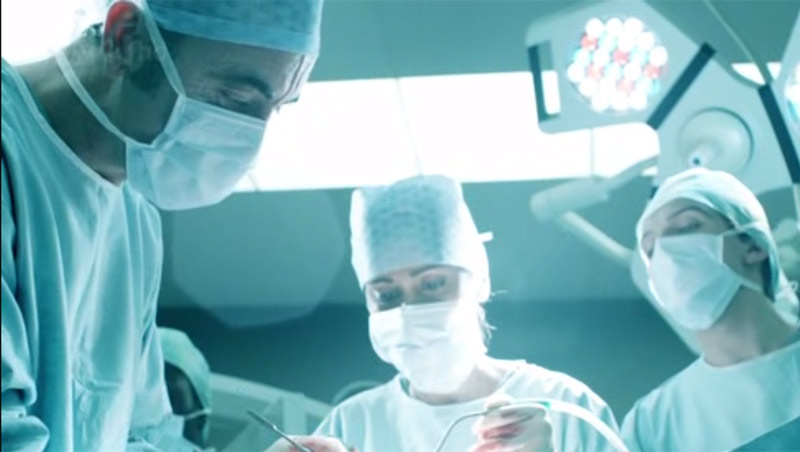After thyroid surgery – thyroid surgery recovery
- After you wake up from the anaesthesia you will be moved to your room in the hospital
- You may begin drinking liquids and then gradually resume a regular diet
- The stitches are dissolving and don’t need to be removed
Hemithyroidectomy
- If you have a thyroid lobectomy, you can expect to be discharged from the hospital the day after surgery
- The length of recovery after hemithyroidectomy is variable but often one to two weeks off work are needed
- You will need to return for an appointment one week after surgery for a post-op check and review of the surgical pathology results
Total thyroidectomy
- You may go home when we are sure that your blood levels of calcium are normal
- While in the hospital, blood tests may be necessary to check the blood level of calcium
- Symptoms of low blood calcium include numbness of the fingers or lips, muscle cramps, or facial twitching – if you or your family notice these symptoms, be sure to notify your nurse. This situation is not uncommon and when it occurs, it is usually short-lived lasting from 1 to 7 days
- If low blood calcium levels are confirmed by the blood tests, you will be given oral supplements (usually Caltrate® tablets) until the calcium levels return to normal
- In all cases, we’ll let you go home when it is safe
- The length of recovery after total thyroidectomy is variable but often one to two weeks off work are needed
Thyroid surgery recovery
- Eating: You may eat or drink whatever you like – most people prefer liquids or soft foods, due to the mild sore throat which is normal for 3-7 days following thyroid surgery recovery
- Bathing: 24 hours following surgery, you may bathe or shower normally – you do not need to keep the stitches or tapes over the stitches dry; however, when you finish bathing or showering, be sure to pat dry the area of surgery
- Medications: You will take an antibiotic for 5 days after surgery – this should be taken as prescribed
- Pain medicine: At discharge from the hospital, a prescription for pain medication will be given to you – by the second day after surgery, most people receive adequate pain relief from Panadeine®; however, if you need prescription-strength medicine to be comfortable, you should take it
- If you need prescription pain medicine, be sure to take it with food to prevent upset stomach. Do not take aspirin, Nurofen or NSAIDS, which may increase the risk of bleeding
- Driving after thyroid surgery: You should not drive for at least 1 week following thyroid surgery – this is because the muscles of the neck will be sore, which makes it difficult for you to drive safely
Follow-up visits after thyroid surgery recovery
- Your first office visit will occur 7-10 day after surgery – at this time, we will discuss the results of the pathology report (tests done on the thyroid gland removed at the time of surgery)
- Your second office visit will occur approximately 6 weeks after surgery to ensure that your thyroid surgery wound is healing well and your recovery is progressing appropriately

